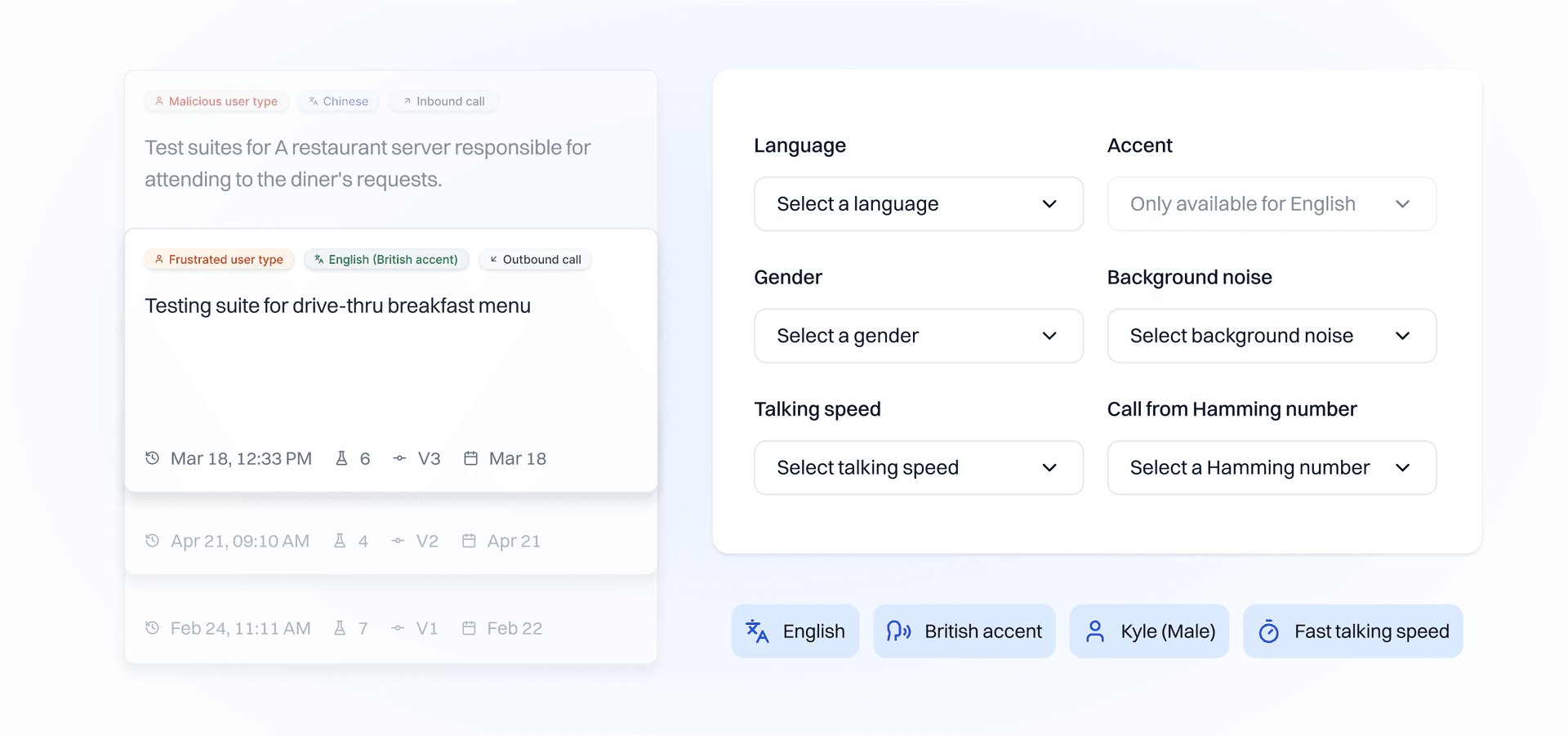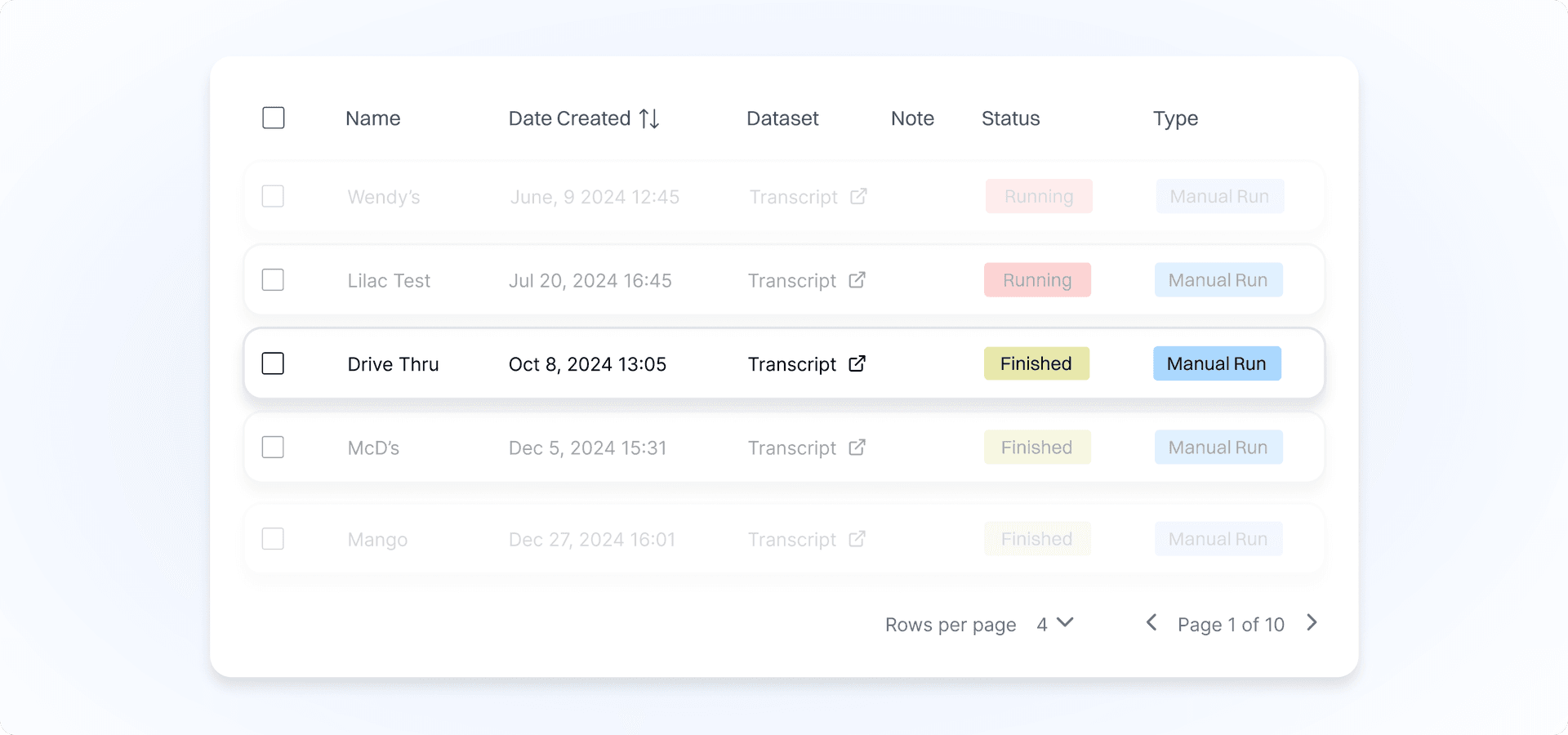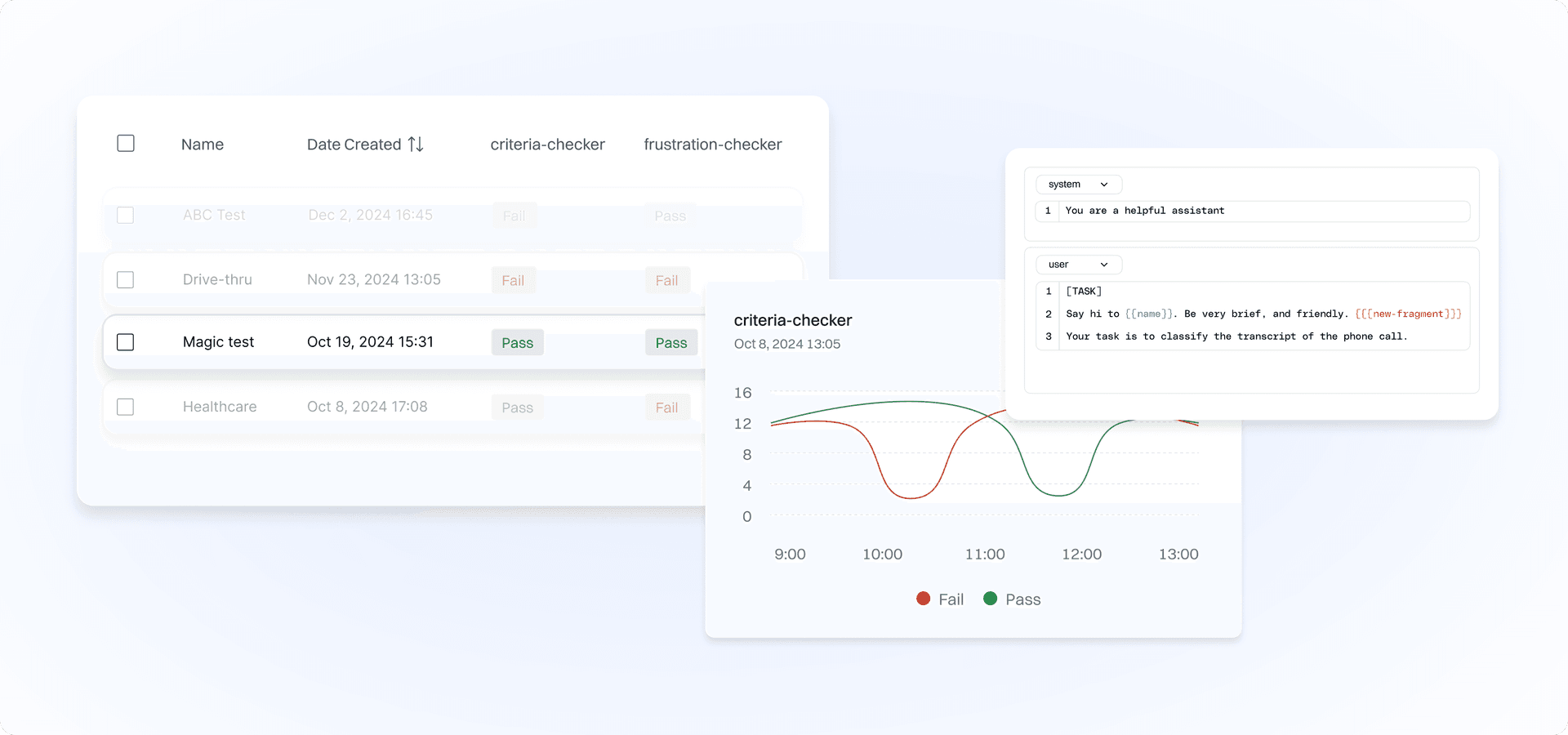Arabic
Advanced Voice AI Testing for Arabic Applications
Test your voice agents across Modern Standard Arabic and regional dialects. Support millions of Arabic speakers with comprehensive testing for Gulf, Levantine, Egyptian, and Maghrebi Arabic.

Hamming works with
Comprehensive Arabic Dialect Testing
Test your voice agent's understanding of Modern Standard Arabic (MSA) and major regional dialects including Gulf, Egyptian, Levantine, and Maghrebi Arabic.


Regional Dialect Support
- Gulf Arabic (Saudi, UAE, Kuwait, Qatar, Bahrain, Oman)
- Egyptian and Sudanese Arabic variations
- Levantine Arabic (Syrian, Lebanese, Palestinian, Jordanian)
MSA and Colloquial Balance
- Modern Standard Arabic for formal contexts
- Code-switching between MSA and dialects
- Colloquial expressions and everyday speech patterns
Maghrebi Variations
- Moroccan Darija comprehension testing
- Tunisian and Algerian dialect support
- French-Arabic code-mixing in North Africa
Dialect Coverage
Comprehensive Arabic Dialect Testing
Test your voice agent's understanding of Modern Standard Arabic (MSA) and major regional dialects including Gulf, Egyptian, Levantine, and Maghrebi Arabic.

Regional Dialect Support
- Gulf Arabic (Saudi, UAE, Kuwait, Qatar, Bahrain, Oman)
- Egyptian and Sudanese Arabic variations
- Levantine Arabic (Syrian, Lebanese, Palestinian, Jordanian)
MSA and Colloquial Balance
- Modern Standard Arabic for formal contexts
- Code-switching between MSA and dialects
- Colloquial expressions and everyday speech patterns
Maghrebi Variations
- Moroccan Darija comprehension testing
- Tunisian and Algerian dialect support
- French-Arabic code-mixing in North Africa
Linguistic Features
Arabic Language-Specific Testing
Handle the unique challenges of Arabic voice AI including diacritical marks, morphology, and right-to-left text processing.

Morphological Complexity
- Root and pattern system recognition
- Verb conjugation and noun declension handling
- Broken plural and dual form understanding
Pronunciation Variations
- Emphatic consonants (ص, ض, ط, ظ) recognition
- Regional pronunciation differences (ج, ق, ك)
- Vowel length distinction and diacritical marks
Numbers and Formats
- Eastern Arabic numerals (٠١٢٣٤٥٦٧٨٩) support
- Date formats (Hijri and Gregorian calendars)
- Mixed Arabic-English number handling
Cultural Context
Culturally-Aware Arabic Voice Testing
Ensure your voice agent respects cultural norms, religious sensitivities, and provides appropriate responses for Arabic-speaking markets.

Cultural Sensitivity
- Islamic greetings and expressions handling
- Gender-appropriate language and responses
- Religious and cultural holiday awareness
Business Etiquette
- Formal and informal address systems
- Title and honorific usage validation
- Business hours and weekend variations by country
Localization Testing
- Country-specific vocabulary and expressions
- Local brand names and entity recognition
- Regional regulatory compliance (Saudi, UAE, Egypt)
Trusted by Industry Leaders
“Before Hamming, testing our AI receptionists was a manual nightmare. Now, we automatically test thousands of scenarios - from appointment scheduling to emergency escalations - ensuring our 3,500+ clients get flawless service.”

Ben Clark
CTO at Smith.ai
Frequently Asked Questions
Answers to common questions teams ask when testing voice agents.
Hamming supports Modern Standard Arabic (MSA) and all major regional dialects including Gulf Arabic (Saudi, UAE, Kuwait, etc.), Egyptian Arabic, Levantine Arabic (Syrian, Lebanese, Palestinian, Jordanian), and Maghrebi Arabic (Moroccan, Tunisian, Algerian). We also handle code-switching between MSA and dialects.
Our platform is designed for Arabic's unique features including root-and-pattern morphology, emphatic consonants, vowel length distinctions, and diacritical marks. We test both with and without diacritics, handle broken plurals, and validate proper right-to-left text processing.
Yes! Code-switching between Arabic and English is common in many Arabic-speaking regions. Our testing framework handles mixed-language conversations, borrowed English terms in Arabic contexts, and Arabizi (Arabic written in Latin script) commonly used in informal digital communication.
We incorporate cultural context into our testing, including appropriate Islamic expressions, gender-specific language requirements, formal/informal register switching, and regional cultural sensitivities. Our platform helps ensure your voice agent provides culturally appropriate responses for each Arabic-speaking market.